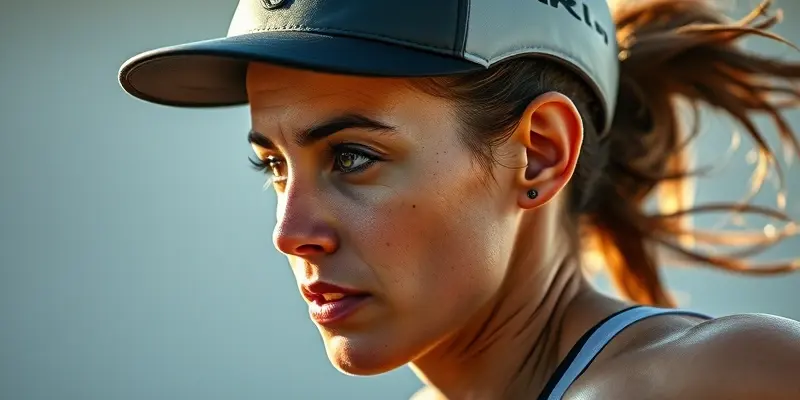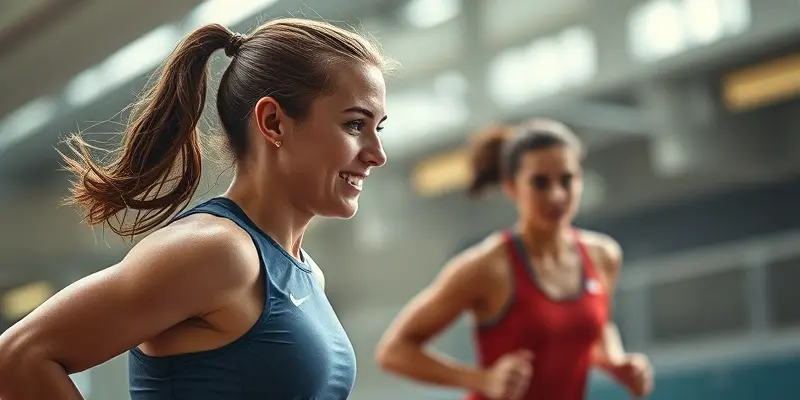Simone Biles, Recovery & You: What Every Athlete Must Learn About Injury, Safety & Mental Health
When Simone Biles withdrew from the Tokyo 2020 Olympics, the world watched in awe—not just of her athleticism, but her courage in choosing mental and physical wellness over medals. Her story isn’t just for gymnasts or Olympians; it’s a wake-up call for all of us who care about fitness, performance, and sustainable health.
If you’re a beginner keen on safe progress, a weekend warrior worried about soreness, or a competitive athlete chasing your personal best, Biles’ journey has practical lessons you can use. Ready to change the way you think about injury, recovery, and mental health? Let’s dive in.
Simone Biles’ Courage – Setting a New Standard
In Tokyo, Biles faced a dangerous phenomenon known as “the twisties”—a sudden loss of air awareness that can lead to serious injury. She made the tough call to prioritize her well-being, saying, “I have to focus on my mental health and not jeopardize my health and well-being.”
Why does this matter for every fitness enthusiast? Biles showed it’s okay—actually, it’s essential—to step back when your mind and body are telling you something’s wrong. Her openness shattered taboos, sparking a much-needed cultural shift where mental health is seen as critical to physical success.
Common Injuries in Fitness & The Role of Mental Blocks
In most sports and fitness routines, injuries like sprains, muscle strains, and stress fractures are common. But did you know psychological factors can trigger—or worsen—physical risks? The “twisties” is one dramatic example in gymnastics, but gym anxiety, performance pressure, or fatigue can affect anyone’s movement and safety.
Think of your mind and body as a team. If one isn’t “in the game,” injuries are more likely. Ignoring stress, fear, or overwhelm isn’t a sign of toughness—it’s a risk.
Injury Prevention – Modern, Science-Based Strategies
Staying injury-free isn’t just about luck. Evidence-based prevention means:
- Mastering proper form: This reduces unnecessary strain and teaches your body safe movement patterns.
- Warming up and cooling down: The basics—like dynamic stretching—improve blood flow and mobility.
- Cross-training: Mixing up cardio, strength, and flexibility keeps overuse injuries at bay.
- Mental readiness: A quick self-check (“Am I focused? Am I stressed?”) prevents rushed, risky decisions.
Pro tip: Schedule “therapeutic days” just as Biles does, blocking out time for both mental rest and gentle activity.
Recovery the Biles Way: Therapy, Rest, Nutrition
Recovery isn’t just ice packs and stretching—it’s a full mind-body reset.
- Therapy & Mental Check-ins: Biles credits regular therapy and open conversations for restoring her confidence and focus. Don’t be afraid to seek support; even a chat with a trusted friend can make a difference.
- Planned Rest Days: Scheduled downtime accelerates healing and prevents burnout.
- Nutrition: During recovery, fuel up with:
- Lean proteins (chicken, fish, beans) for muscle repair
- Hydration (water, electrolyte drinks)
- Antioxidants & Anti-inflammatory foods (berries, leafy greens, turmeric) such as those discussed in our post on antioxidants in sports nutrition
Think of food as both energy and medicine for your body.
The Role of Tech & Tools
Modern athletes—including Biles—leverage technology to support recovery:
- Wearables: Track sleep, readiness, and even mood, helping spot early signs of fatigue or stress.
- Recovery Gear: Foam rollers, massage guns, and compression sleeves promote circulation and reduce soreness.These tools aren’t just for pros. If you do three workouts a week, a simple foam roller can make a world of difference.
Mindset for Long-Term Health
Sustainable fitness goes beyond muscle and movement. Here’s how to build resilience like the world’s best:
- Therapy and Mindfulness: Regular “mental hygiene” is as vital as lifting weights.
- Social Support: Stay connected—to teammates, coaches, family, or your fitness community.
- Reframe Setbacks: Biles describes returning to competition as “showing up, being in a good head place, having fun out there.” Focus on progress, not perfection. Celebrate small wins—even a successful rest day counts!
Conclusion: Prioritizing You—Not Just Your PRs
Simone Biles’ example proves that courage in fitness is about listening to your body and mind. Make space for recovery, mental health, and smart training in your routine. Whether you’re nursing an injury, feeling stressed, or striving to reach the next level, remember: long-term health always beats short-term victory.
What’s your next step? Try a “therapeutic day,” check your mental headspace before your next workout, or talk recovery strategies with your fitness group. And if you’re looking for inspiration, just remember: even champions need rest.
Ready to train smarter, recover better, and thrive? At Gympulse, we’re with you every step—body and mind.

